Evergreen Apologizes to China Over Flag Controversy Amid Backlash and Boycotts
The recent controversy surrounding Taiwan-based Evergreen Group's refusal to display the Chinese national flag at one of its hotels in Paris has taken a surprising turn, with the company issuing an apology and expressing its support for the "1992 Consensus" and opposition to Taiwan independence.
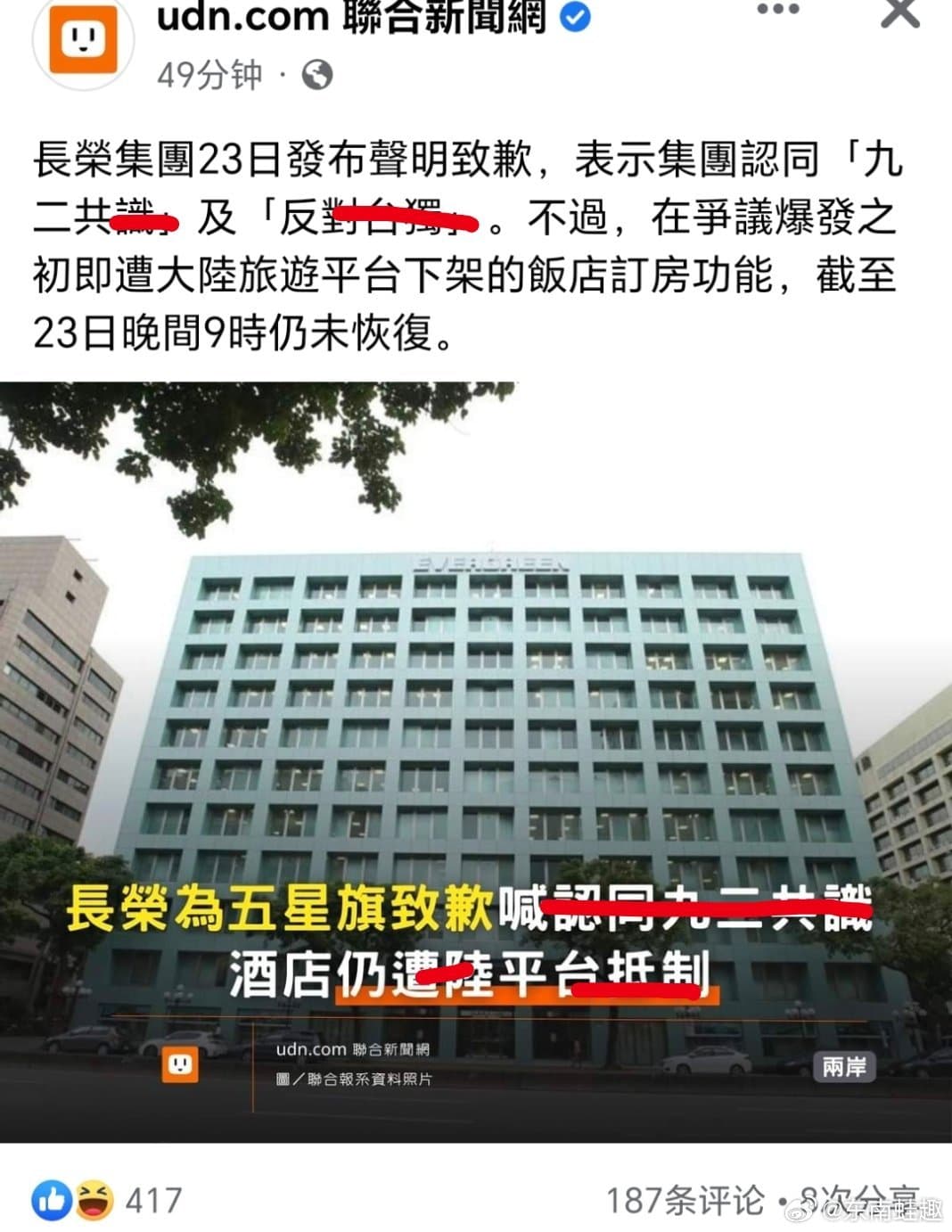
23 August 2024
The incident began when a Chinese blogger discovered that the Evergreen Laurel Hotel in Paris had removed the Chinese national flag from its display of international flags, sparking widespread outrage on social media. The hotel initially refused to reinstate the flag, claiming that it would remove all national flags to avoid controversy.
The backlash against Evergreen was swift and severe, with many Chinese netizens calling for a boycott of the company's hotels and shipping services. The pressure eventually became too much for Evergreen, which finally issued a statement apologizing for the incident and affirming its support for the "1992 Consensus," a policy that acknowledges the One-China principle, which holds that there is only one China and Taiwan is part of it.

The apology was met with skepticism by many on social media, who questioned the sincerity of Evergreen's statement. "They only apologized because they were losing money," wrote one user. "If they really believed in the One-China principle, they wouldn't have taken so long to apologize."
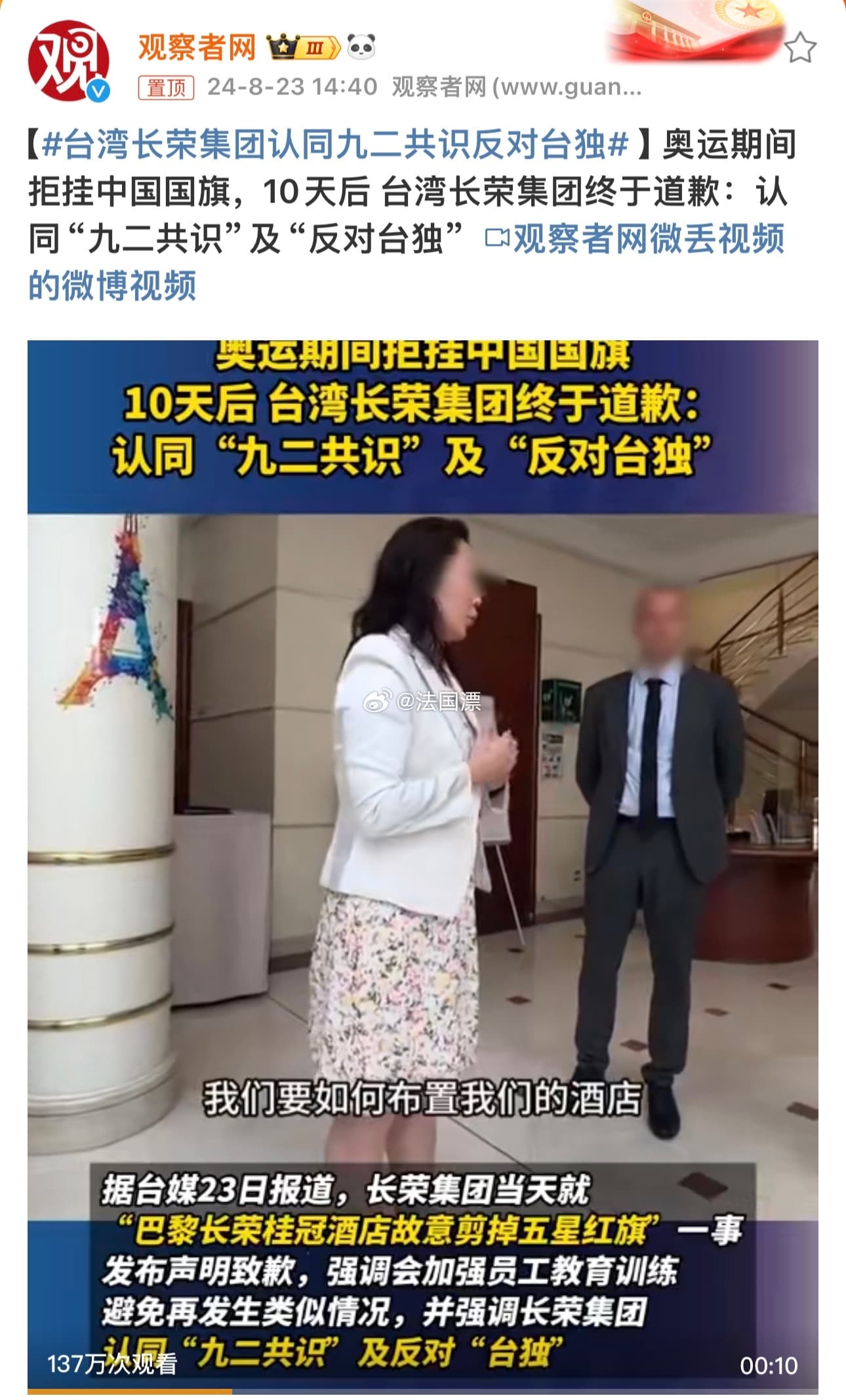
Others pointed out that Evergreen's founder, Chang Yung-fa, had a history of supporting Taiwanese independence activists, including former President Chen Shui-bian. "This old man has been a long-time supporter of Taiwanese independence," wrote one user. "Now he's trying to save his company's skin by pretending to support the One-China principle."

The incident has also sparked a wider debate about the relationship between Taiwan and China. Some Taiwanese netizens expressed support for Evergreen's initial decision to remove the Chinese national flag, arguing that it was a matter of national sovereignty.
However, many others were critical of the company's handling of the situation, saying that it had damaged Taiwan's reputation and emboldened Chinese aggression towards the island. "This incident has shown that Taiwan is not united in its opposition to Chinese aggression," wrote one user. "We need to stand up for our rights and our sovereignty, rather than kowtowing to Chinese pressure."
The controversy has also had significant economic implications, with many Chinese companies announcing that they would be severing ties with Evergreen. The company's shipping business, which relies heavily on Chinese trade, has been particularly hard hit, with several major suppliers announcing that they would no longer be working with Evergreen.
As the fallout from the incident continues to unfold, it remains to be seen whether Evergreen's apology will be enough to repair its relationships with Chinese customers and businesses. However, one thing is clear: the incident has highlighted the delicate balance of power between Taiwan and China, and the challenges that Taiwanese companies face in navigating this complex and often contentious relationship.
In a statement, Evergreen said that it would "strengthen employee education and training to avoid similar incidents in the future." However, many remain skeptical of the company's intentions, and it is unclear whether its apology will be enough to regain the trust of Chinese customers and businesses.
The incident has also sparked a wave of nationalism on social media, with many Chinese netizens calling for a boycott of all Taiwanese products and companies that do not support the One-China principle. "We Chinese people are like scattered stars when we are scattered, but we are like a fire when we come together," wrote one user. "Let us unite to resist the arrogance of Taiwanese companies like Evergreen."
However, others have expressed concern about the economic implications of such a boycott, arguing that it could harm both Taiwanese and Chinese businesses. "This boycott is not the answer," wrote one user. "We need to find a way to resolve our differences through dialogue and cooperation, rather than resorting to economic warfare."
As the debate continues to rage on social media, one thing is clear: the incident has highlighted the complex and often contentious relationship between Taiwan and China, and the challenges that companies face in navigating this delicate balance of power.
Share this article
Related Articles
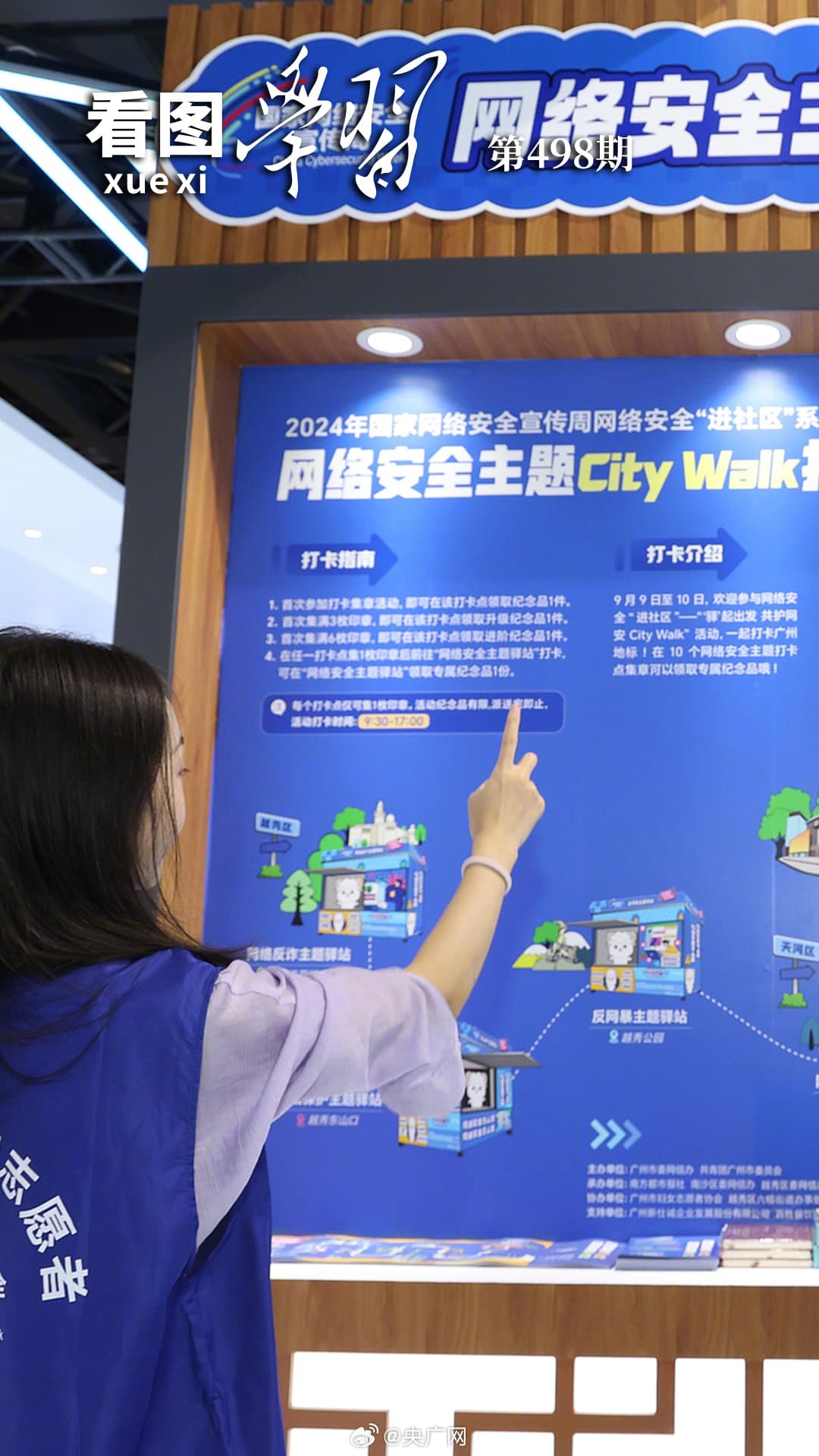
Xi Jinping Elevates Cybersecurity to Core National‑Security Pillar, Driving China’s Quest for a Cyber Superpower
By Trending on Weibo
News & Politics
15 Sept 2025
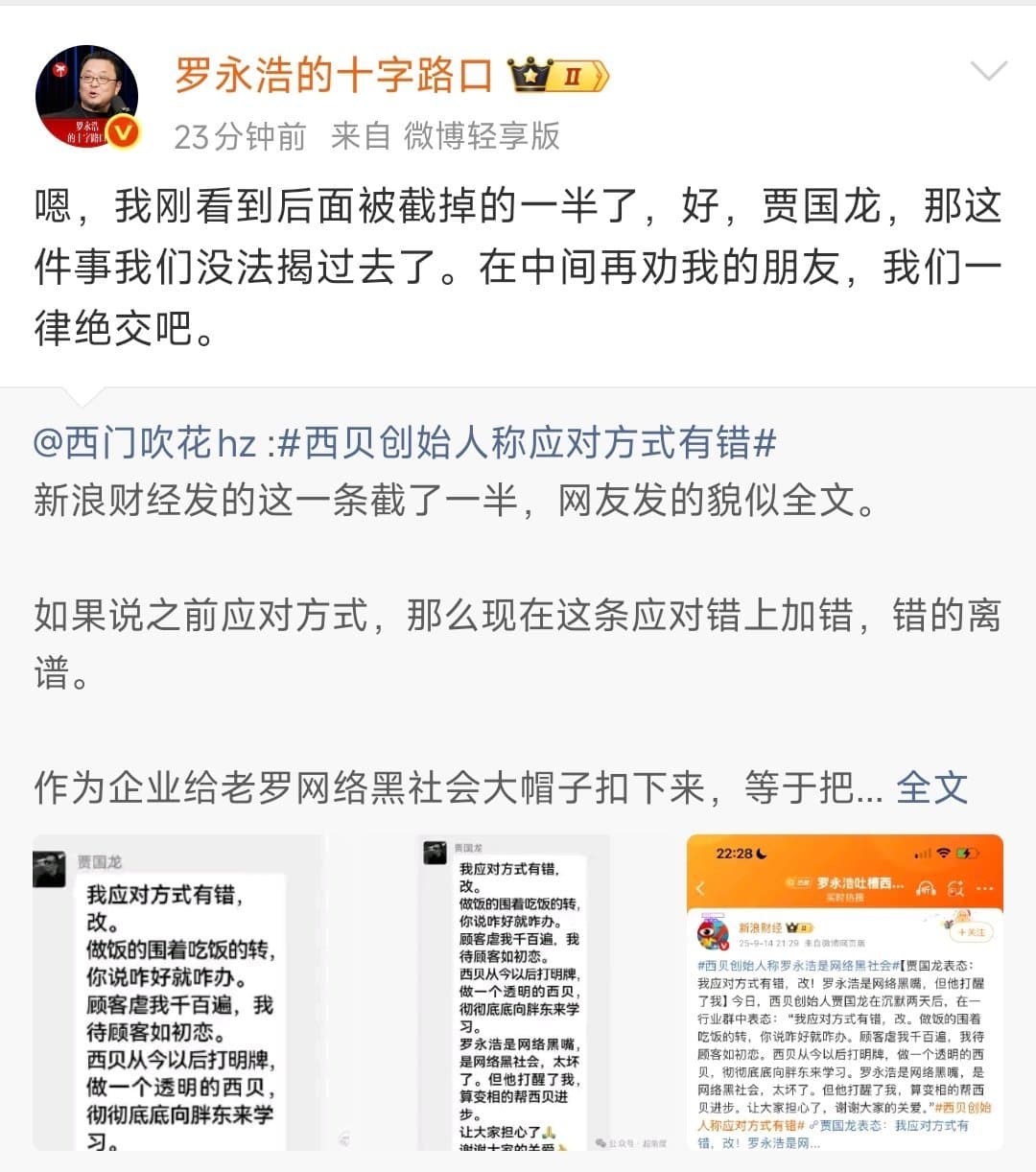
Luo Yonghao vs. Xibei: Celebrity Entrepreneur Sparks Media Storm Over Pre‑Made Dishes and Calls for Transparency
By Trending on Weibo
News & Politics
15 Sept 2025

Weibo Celebrates Autumn Harvest as China’s Fields Become the Nation’s Most Beautiful Canvas
By Trending on Weibo
News & Politics
15 Sept 2025
China Enacts First Comprehensive Rental Regulations to Legalize and Stabilize the Rental Market
By Trending on Weibo
News & Politics
15 Sept 2025
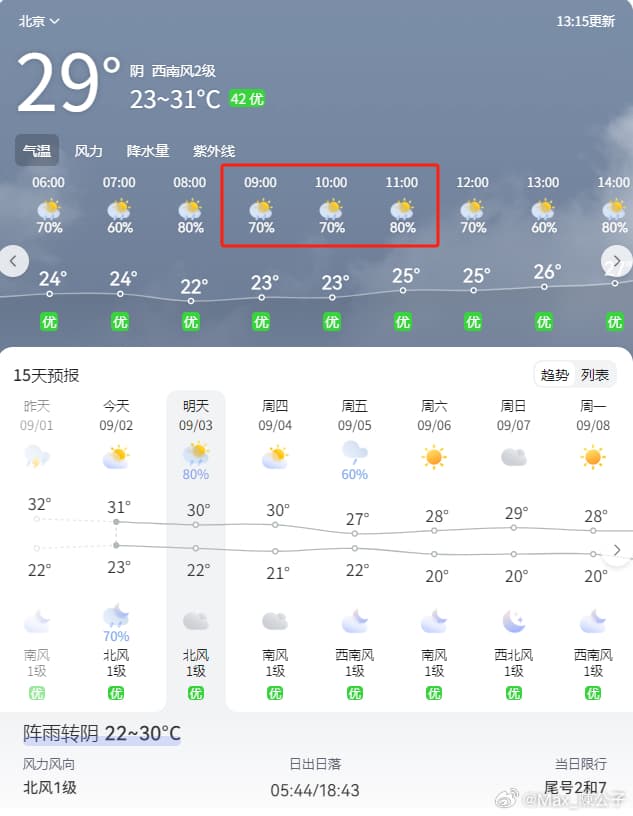
Beijing’s Weather Emerges as a Barometer for China’s Climate Policies and Public Life
By Trending on Weibo
News & Politics
13 Sept 2025